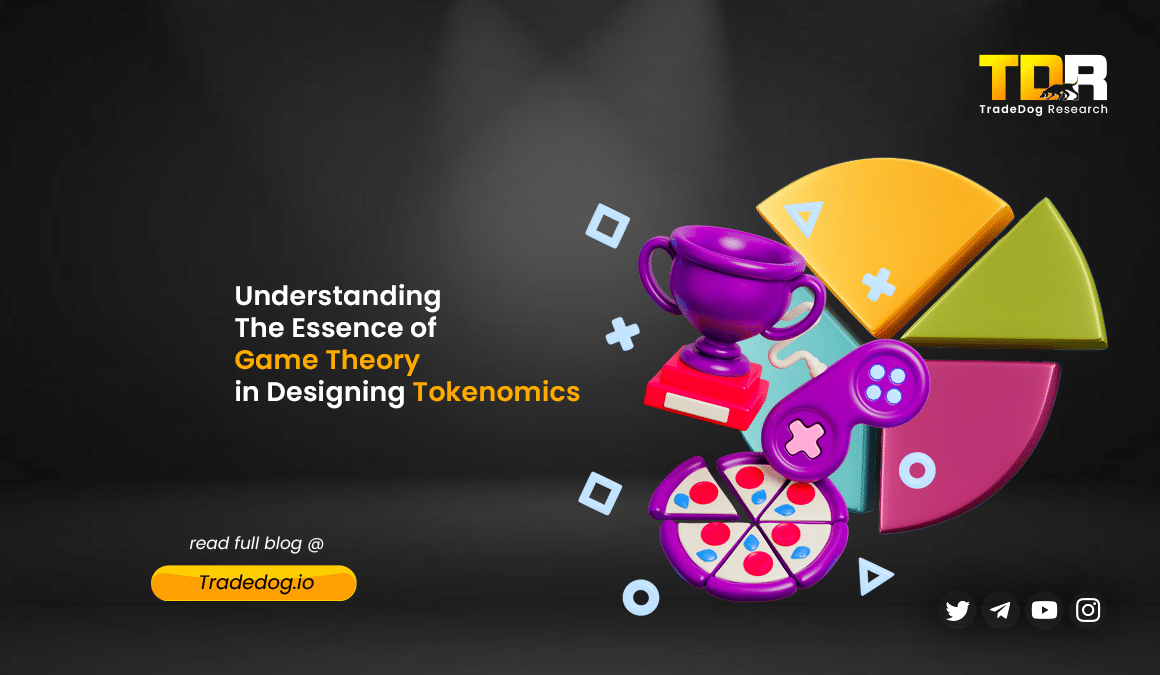Al Jobran Insights
Exploring a World of News and Information
Tokenomics Unleashed: How to Turn Playtime into Profit
Discover the secrets of Tokenomics and learn how to transform your gaming experience into real profits today! Unleash your potential!
Exploring the Future of Gaming: How Tokenomics is Revolutionizing Play-to-Earn Models
As the gaming industry continues to evolve, tokenomics is emerging as a pivotal force in redefining the gaming landscape. With the rise of play-to-earn models, players are no longer just passive consumers; instead, they can actively participate in the economic systems of their favorite games. This shift allows gamers to earn real value through their in-game efforts, creating a virtuous cycle where both developers and players benefit. By leveraging blockchain technology, tokenomics introduces transparency and security to transactions, ensuring that players are fairly rewarded for their contributions.
Looking ahead, the future of gaming with tokenomics promises to revolutionize not only how games are played but also how communities are built. As more developers adopt play-to-earn mechanics, we can expect an increase in decentralized gaming ecosystems where players have a say in the development and governance of the games they love. This evolution fosters a sense of ownership and investment among players, creating deeper emotional connections to the titles. As technology advances, the potential for enriched gaming experiences and sustainable economic models will only grow, making it an exciting time to be involved in the gaming world.

Counter-Strike is a highly popular team-based first-person shooter game that has captivated players around the world. It features competitive gameplay where teams of terrorists and counter-terrorists battle to complete objectives. Players can take advantage of promotions to enhance their gaming experience, such as using a bc.game promo code to unlock special features.
The Fundamentals of Tokenomics: Key Principles for Maximizing Your Earnings in Gaming
Tokenomics refers to the study and design of the economic systems within blockchain projects, particularly in the realm of gaming. Understanding the fundamentals of tokenomics is crucial for players looking to maximize their earnings while engaging in crypto-based games. Key elements include token supply, which defines how many tokens exist and their scarcity; utility, which describes how tokens can be used within the game; and incentives, which motivate players to participate actively. A well-designed tokenomics model will not only promote engagement but also ensure a fair distribution of rewards and resources among players.
To truly leverage the opportunities within gaming tokenomics, players should keep an eye on three essential principles:
- Liquidity: Ensure that the game tokens can be easily traded in secondary markets, allowing players to cash out or reinvest their earnings.
- Long-term Value: Look for projects that prioritize sustainable growth. Tokens should appreciate in value over time, benefiting early adopters.
- Community Governance: Engage with games that offer players a say in the evolution of the game's economy and governance. Participating in decision-making processes can lead to better rewards and a more extensive investment in the game's success.
Can Playtime Truly be Transformed into Profit? Debunking Myths in Tokenomics
The concept of turning playtime into profit has sparked numerous debates, particularly around the viability of tokenomics in gaming. Some enthusiasts argue that every minute spent in a game translates to an economic advantage, yet this perspective ignores critical factors that govern real-world economics. Tokenomics, the study of the economic systems behind token-based ecosystems, reveals a complex interplay between game design, player motivation, and market dynamics. For instance, while earning tokens through gameplay may seem like an easy avenue to profit, several underlying issues such as inflation, market saturation, and fluctuating demand can severely impact the value of those tokens.
Moreover, misconceptions about tokenomics often lead to unrealistic expectations among players. The myth that every player can easily monetize their skills overlooks the inherent inequalities present in most games, such as differing levels of access, investment, and expertise. It is essential to acknowledge that not every game designed with a token-based economy guarantees profitability for its users. As players navigate this evolving landscape, understanding the true nature of tokenomics can help dispel the myths surrounding play-to-earn models and lead to more informed participation in these lucrative yet often volatile ecosystems.